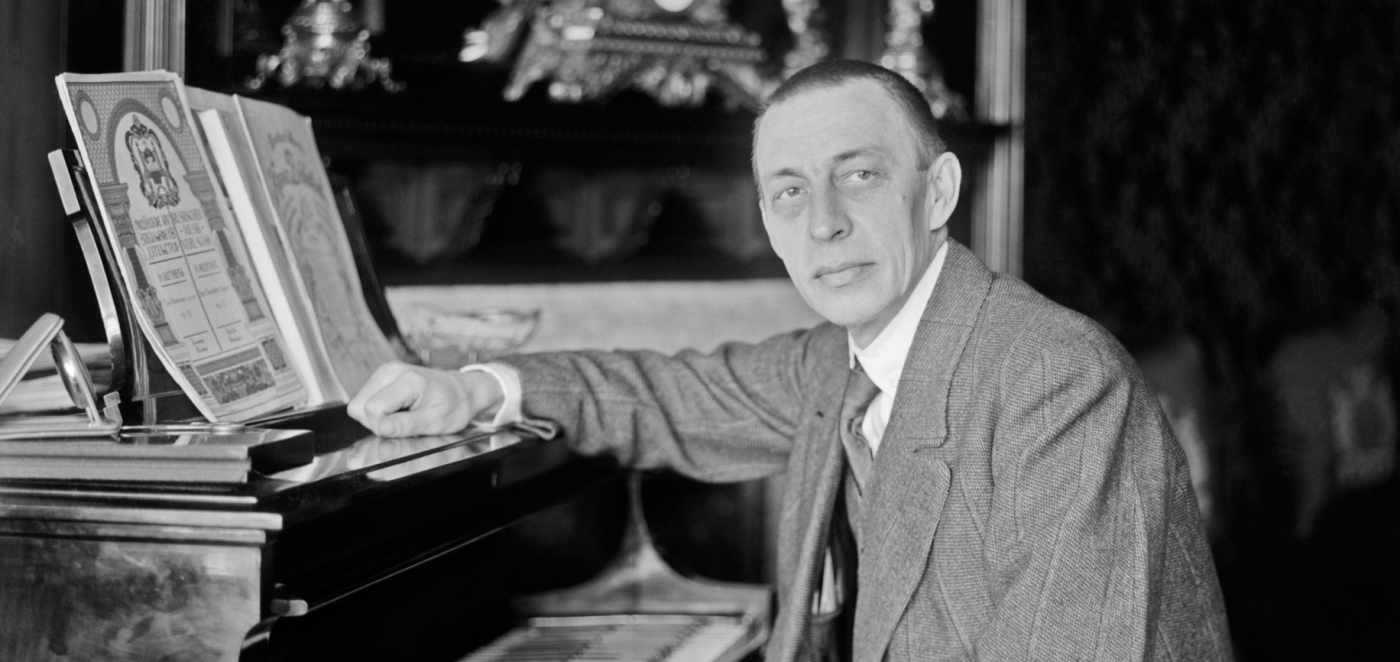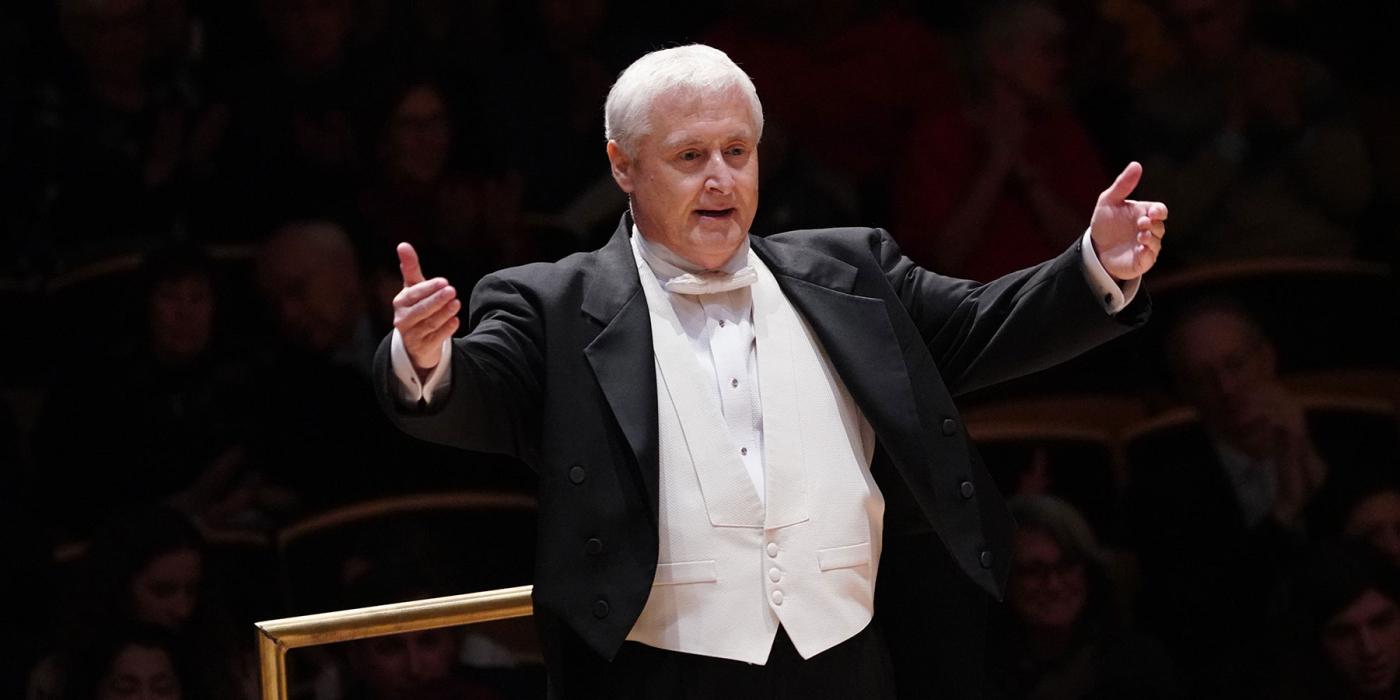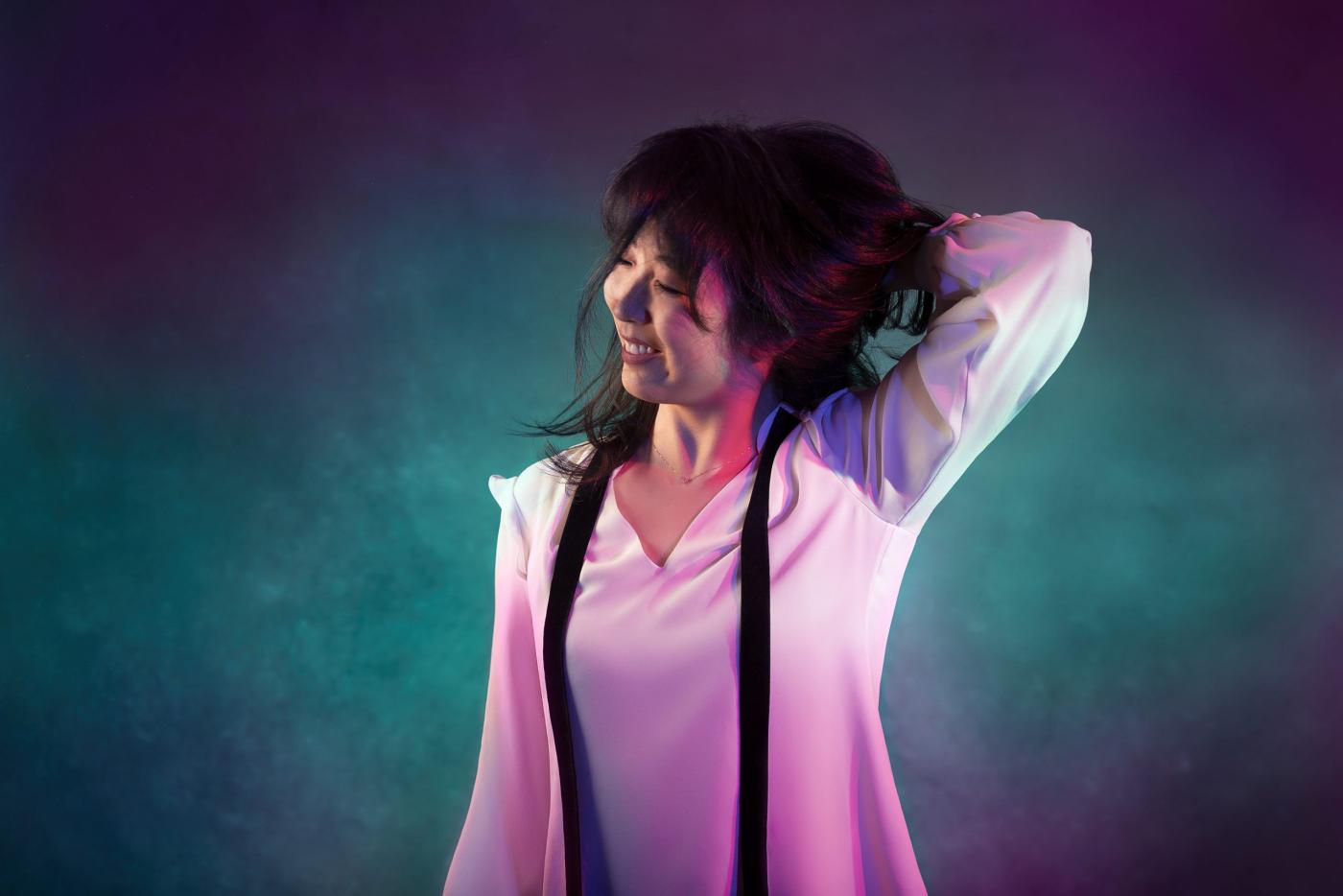This year, classical music lovers across the world are celebrating the 150th birthday of the beloved composer, Sergei Rachmaninoff, born on April 1, 1873. From memorable melodies inspiring top pop songs to iconic pieces in the classical music repertoire, Rachmaninoff has touched the hearts of both musicians and audiences alike for well over a century. And so the music world is in for a treat as orchestras celebrate the beloved composer this year with programs of Rachmaninoff’s decadent music.
The National Philharmonic is excited to invite you to join their musical birthday celebration with the program “Rachmaninoff’s 150th Birthday” at the Music Center at Strathmore on February 3, 2023 at 7:30 PM. Celebrated pianist Claire Huangci joins the National Philharmonic for the showstopper Rhapsody on a Theme of Paganini. The program closes with his Symphony No. 2, an emotional and intense display of why Rachmaninoff has captivated his audience for a century and a half.
We are thrilled to hear more about this program from the National Philharmonic’s Music Director and Conductor, Maestro Piotr Gajewski!
Since it was penned in 1807, Niccolò Paganini’s famous Caprice No. 24 for solo violin was used as a basis for original compositions by more than 50 composers — most famously perhaps Franz Liszt and Johannes Brahms. And so, in 1934, Sergei Rachmaninoff decided to add his own opus. The Rhapsody on a Theme of Paganini for piano and orchestra would serve Rachmaninoff well as a solo vehicle for his upcoming American tour.
The premiere of the work — which was composed in Switzerland — took place at the Lyric Opera House in Baltimore on November 7, 1934, with the composer at the keyboard joined by the Philadelphia Orchestra conducted by Leopold Stokowski. The Rhapsody consists of the Paganini theme and 24 variations, of which the one instantly recognizable is No. 18 as it has been used in about a dozen movies, including, amusingly, "Groundhog Day!" And so, for National Philharmonic’s Maryland celebration of Rachmaninoff’s 150th Anniversary, the Rhapsody on a Theme of Paganini seems quite fitting.
The soloist for the February 3 performance at The Music Center at Strathmore will be the Germany-based American pianist Claire Huangci. I have wanted to collaborate with Claire, who is just fabulous, for many years, but somehow the planets have never lined up until now. And perhaps it is kismet that this particular concert will mark her NatPhil debut as she has a long history with the Rachmaninoff Rhapsody — her performance is not to be missed!
In the second half of the program, we offer another Rachmaninoff favorite: Symphony No. 2, composed in 1907, much earlier than the Rhapsody, and premiered in St. Petersburg to immediate acclaim. This is a large work in four movements, in usual Symphonic form — except that the very substantial opening movement is followed first by a scherzo and then a slow movement, rather than the other way around which was customary. A rousing finale closes the work.
The expansive romantic tunes foreshadow Rachmaninoff’s many later works, with the slow movement providing perhaps the most memorable tune. Some 70 years later, this tune would be used by the American pop artist Eric Carmen as the chorus of his hit single "Never Gonna Fall in Love Again." The song hit #11 on the Billboard Hot 100 and stayed on the Top 40 list for 10 weeks. Unfortunately for Mr. Carmen, this success did not go unnoticed by Rachmaninoff’s heirs, who claimed copyright infringement. In the end, they settled with Carmen for 12% royalties from the song. Nice!
In contrast, however, there is no record of Rachmaninoff’s heirs (or anyone else for that matter) ever offering royalties to Paganini’s heirs for the liberal use of his Caprice No. 24!
– Piotr Gajewski
Music Director & Conductor, National Philharmonic
nationalphilharmonic.org
Learn more about the life of Sergei Rachmaninoff
Learn more about Rachmaninoff's Rhapsody on a Theme of Paganini
PBS PASSPORT
Stream tens of thousands of hours of your PBS and local favorites with WETA+ and PBS Passport whenever and wherever you want. Catch up on a single episode or binge-watch full seasons before they air on TV.


